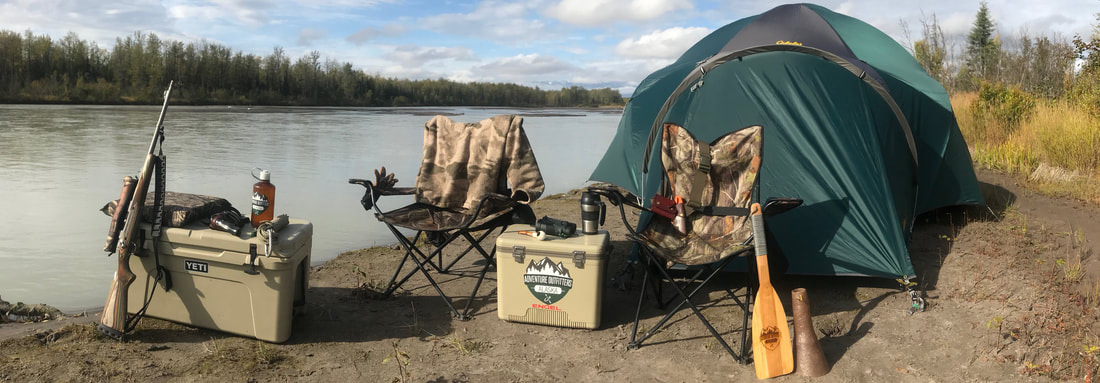Embracing the Wild: The Essence of Hunting and Camping
Hunting and camping are time-honored traditions that connect us to our primal instincts and the natural world. Rooted in exploration, self-reliance, and adventure, these pursuits offer a unique opportunity to immerse oneself in the great outdoors and experience the beauty and challenges of nature firsthand.

1. The Pursuit of Game
Hunting is the ancient art of tracking, pursuing, and harvesting wild game for food, resources, and conservation. From majestic deer to elusive birds, hunters embark on quests to test their skills, patience, and connection to the land. Whether hunting for sustenance or sport, the thrill of the chase and the satisfaction of a successful harvest are deeply ingrained in the hunting tradition.
2. Camping: A Return to Nature
Camping is the practice of temporarily living outdoors, often in tents or shelters, to immerse oneself in nature and escape the hustle and bustle of modern life. From remote wilderness campsites to family-friendly campgrounds, campers seek solitude, relaxation, and adventure in the beauty of the natural world. Camping allows individuals to disconnect from technology, reconnect with nature, and rejuvenate their spirits amidst the serenity of the wilderness.
Gear Essentials: Equipping for the Journey
Preparation is key to a successful hunting and camping expedition, and having the right gear can make all the difference in comfort, safety, and enjoyment in the outdoors.
1. Hunting Gear
Hunting gear encompasses a range of specialized equipment tailored to the needs of the hunter. This includes firearms or archery equipment for harvesting game, as well as essential accessories such as ammunition, binoculars, and hunting knives. Additionally, hunters rely on camouflage clothing, scent control products, and hunting blinds or tree stands to conceal their presence and increase their chances of success in the field.
2. Camping Equipment
Camping equipment is designed to provide shelter, comfort, and convenience in the wilderness. Tents, sleeping bags, and sleeping pads offer protection from the elements and a comfortable place to rest at night, while camping stoves, cookware, and utensils allow for hot meals and beverages in the great outdoors. Other essential camping gear includes backpacks, water filtration systems, and lighting devices for navigating and surviving in remote environments.
Hunting Techniques: Strategies for Success
Successful hunting requires a combination of skill, knowledge, and strategy, as well as respect for wildlife and ethical hunting practices. Let’s explore some common hunting techniques used by hunters in pursuit of game.
1. Still Hunting
Still hunting involves moving slowly and quietly through the woods or fields in search of game. Hunters rely on stealth, patience, and keen observation to spot and stalk their prey, often using natural cover and terrain features to remain undetected. Still hunting is a challenging but rewarding technique that allows hunters to intimately connect with their surroundings and experience the thrill of the chase up close.
2. Stand Hunting
Stand hunting, also known as ambush hunting, involves waiting in a stationary position, often in a tree stand or ground blind, for game to approach within shooting range. Hunters choose strategic locations based on animal behavior, travel patterns, and habitat features, then patiently wait for the opportune moment to take a shot. Stand hunting requires patience, discipline, and careful preparation to maximize success while minimizing disturbance to the surrounding environment.
Camping Tips: Navigating the Wilderness
Camping in the wilderness requires careful planning, preparation, and attention to detail to ensure a safe and enjoyable experience. Here are some essential camping tips for novice and experienced campers alike.
1. Choose the Right Campsite
Selecting the right campsite is crucial for a successful camping trip. Look for level ground, natural shelter from wind and rain, and access to water and firewood. Avoid camping near hazards such as dead trees, cliffs, or bodies of water, and be mindful of wildlife activity in the area.
2. Pack Wisely
Pack light but efficiently, bringing only the essentials for your camping trip. Consider factors such as weather conditions, terrain, and duration when selecting gear and supplies. Remember to pack items like food, water, shelter, clothing, navigation tools, and emergency supplies, as well as any specialized equipment for hunting or other outdoor activities.
Ethical Considerations: Respect for Nature and Wildlife
Hunters and campers share a responsibility to practice ethical and sustainable outdoor stewardship, respecting wildlife, ecosystems, and public lands for future generations to enjoy.
1. Hunting Ethics
Ethical hunting practices involve hunting responsibly, ethically, and legally while respecting wildlife and their habitats. This includes following hunting regulations and laws, practicing fair chase principles, and minimizing waste by utilizing all harvested game responsibly. Hunters should also prioritize safety, conservation, and respect for landowners and fellow outdoor enthusiasts.
2. Leave No Trace Principles
Leave No Trace is a set of outdoor ethics principles that promote responsible recreation and environmental stewardship in the outdoors. These principles include minimizing impact, disposing of waste properly, respecting wildlife, and leaving natural and cultural resources undisturbed. By adhering to Leave No Trace principles, hunters and campers can minimize their environmental footprint and preserve the integrity of the wilderness for future generations.
Conclusion: Embracing the Call of the Wild
In conclusion, hunting and camping offer unique opportunities to connect with nature, challenge oneself, and experience the beauty and bounty of the great outdoors. Whether hunting for game or camping for relaxation, adventurers can find solace, adventure, and fulfillment in the wilderness. By embracing the traditions of hunting and camping with respect, responsibility, and reverence for the natural world, outdoor enthusiasts can forge deep connections to the land and create lasting memories in the heart of nature’s embrace.